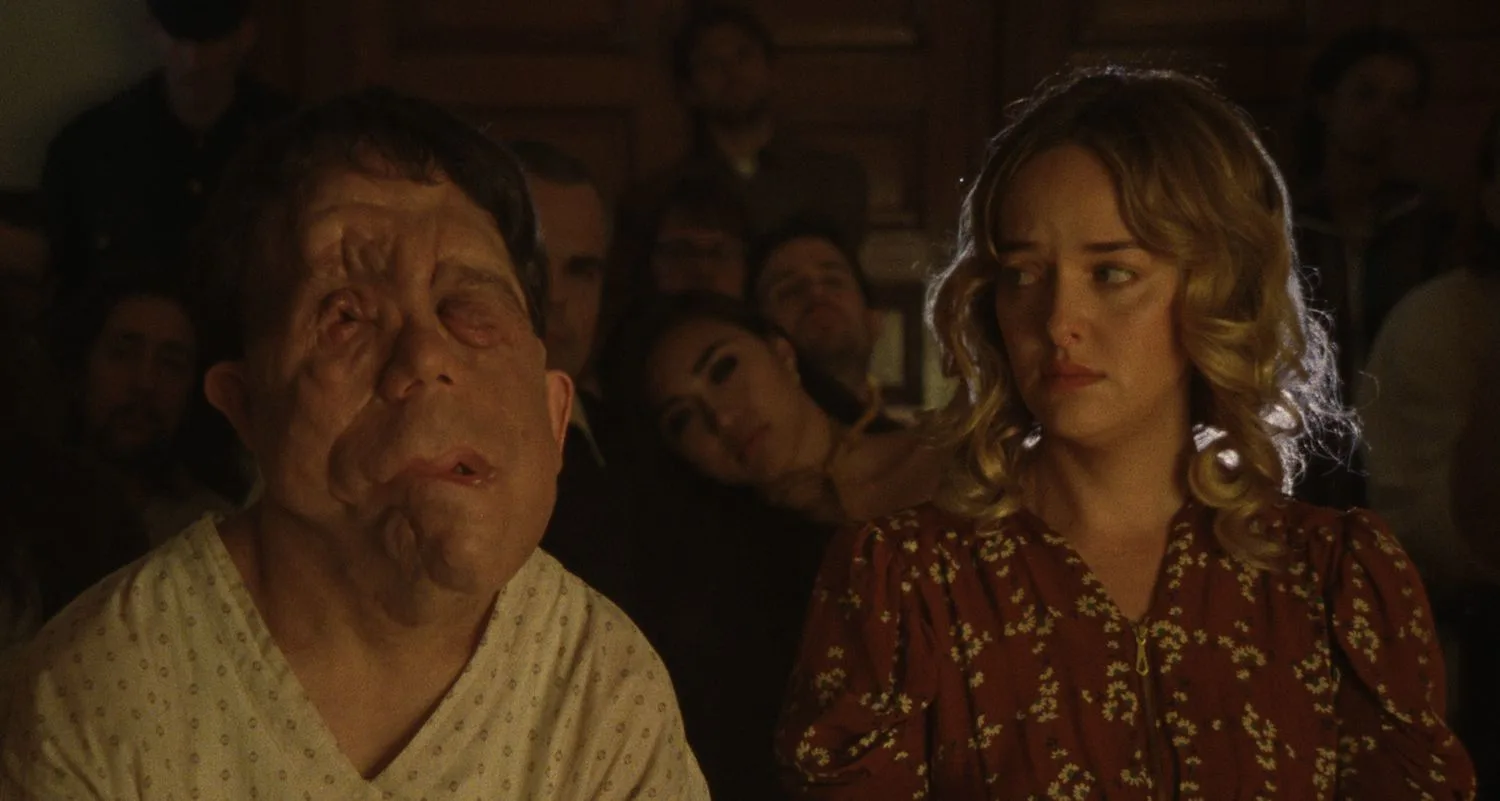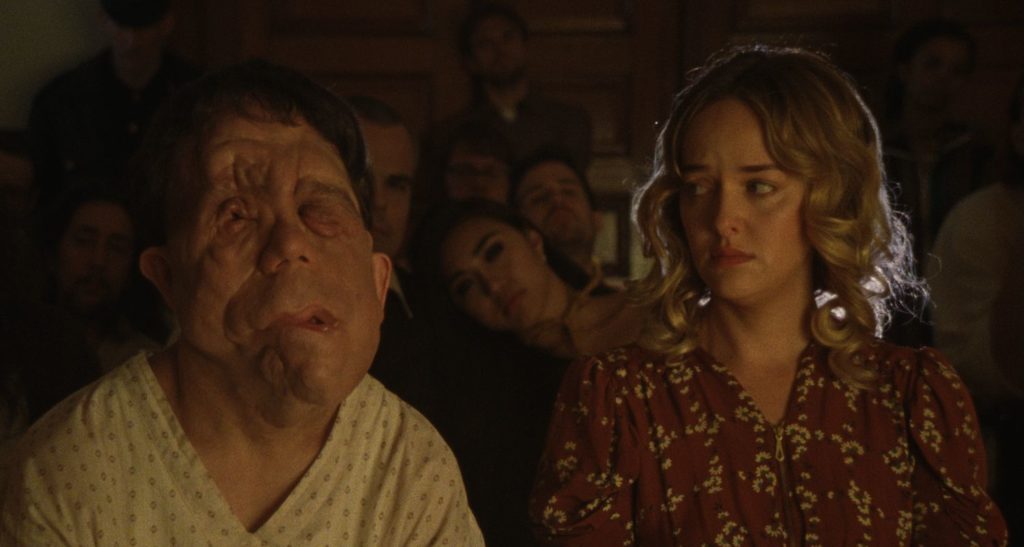Chained for Life
David Lynch Teaches Creativity and Film
An actress working on a horror film develops a connection with her deformed co-star in Chained for Life. Mabel (Jess Weixler) is the lead in a horror film directed by a pretentious German director (Charlie Korsmo), which has a number of deformed individuals in the cast, particularly Mabel’s main co-star Rosenthal (Adam Pearson). At first Mabel struggles to connect with this man with an extreme facial deformity, but she begins to empathize with Rosenthal’s kindhearted demeanor and their relationship begins to mirror their characters in the film.
Chained for Life is a very self-reflexive and meta comedy about both the filmmaking process and the treatment of people with disabilities. Unable to fully connect with her somewhat pretentious co-stars Max (Stephen Plunkett) and Sarah (Sari Lennick), Mabel strikes up a friendship with Rosenthal, who is an incredibly soft-spoken and kind soul, despite his heavily deformed appearance. The boundaries between reality and fiction begin to blur as Rosenthal and his fellow deformed actors turn out to be more than the monsters the horror film is exploiting them to be.
In Chained for Life, writer/director Aaron Schimberg gives a meta-commentary about how people are judged for their appearance. At the core of the story is a very relatable performance by Adam Pearson (Under the Skin) as Rosenthal, who is probably a more relatable person than Mabel’s more self-centred co-stars. As the relationship between Mabel and Rosenthal develops, it becomes more difficult to decipher where the film they are making ends and reality begins, as the two begin to intertwine. Despite featuring a subplot about a serial killer in the area that ultimately goes nowhere, Chained for Life is a very enjoyable and thought provoking character study.


